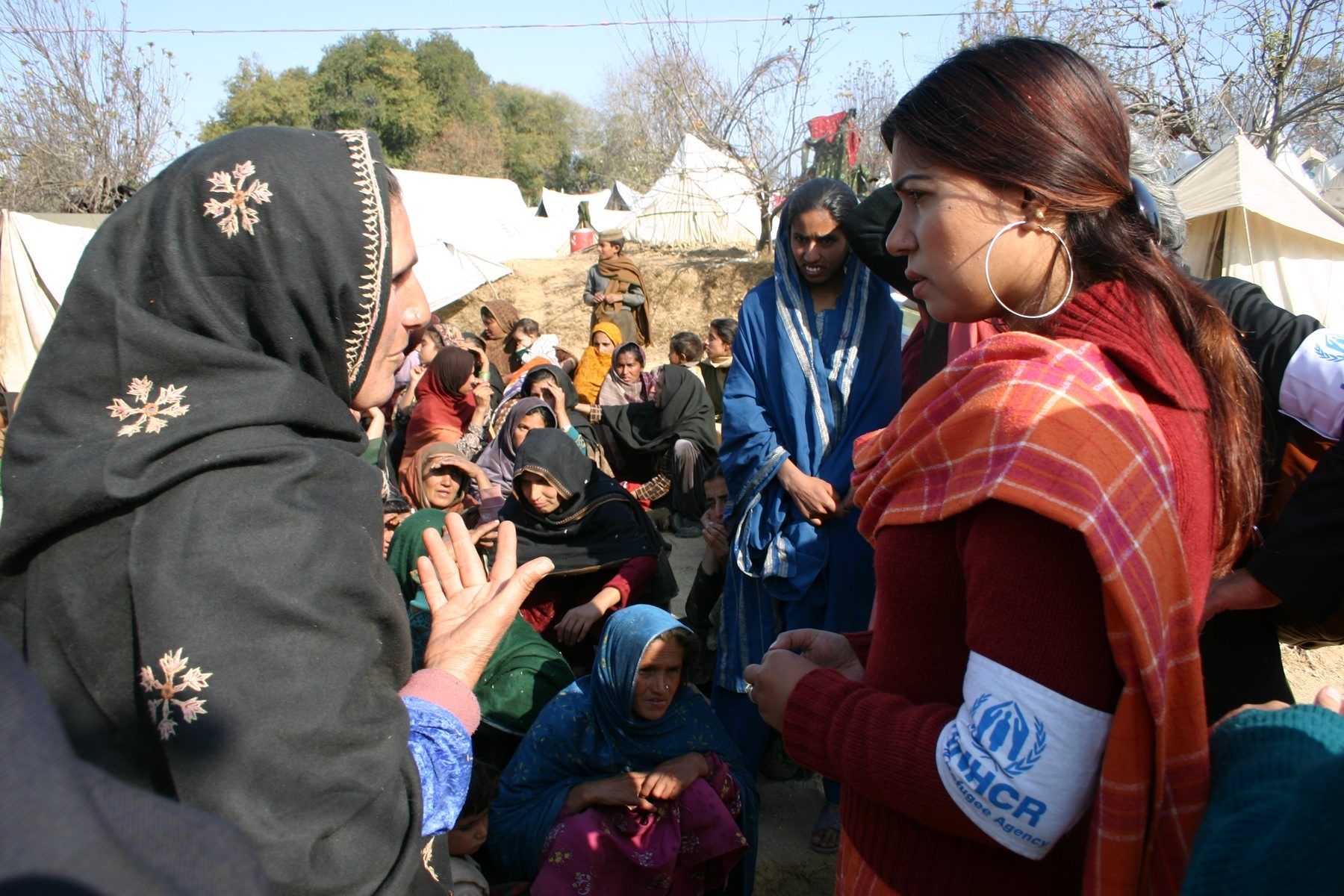Lesson plans for ages 15-18 in Civic Education: Refugee Women and Girls
Lesson plans for ages 15-18 in Civic Education: Refugee Women and Girls
-

A quake survivor at Mundihar camp, near Mansehra, explains her plight to a UNHCR community services worker, Balakot, NWFP.
INTRODUCTION
Before the students attempt to study how women and girls are perceived in different communities, they should first discover their own perceptions and unconscious mind-set. The activity provided in Lesson 1 "My Son, My Son" is a simple but effective way to stimulate discussion about sex roles and stereotyping, and of illustrating the idea that we tend to view the world on the basis of a fixed set of assumptions.
Refugees, especially women refugees need help and protection. Due to disruptions before, during and after flight, the traditional family structure of many refugees is upset. Husbands, brothers, fathers and sons - who normally contribute to the care and protection of their families - are often absent fighting in wars or seeking better work prospects. Others may have been killed or separated from their families in the upheaval of flight. As a consequence, a large number of refugee women find themselves as single heads of households. These women often risk ill-treatment and exploitation as they assume the responsibilities of caring, alone, for their families. Their problems are exacerbated when they are unable to participate in refugee community decision making.
The selected texts from UNHCR publications provide a window into the hardships which women refugees have to face and at the same time demonstrate the need for awareness of sensitive action on the part of aid agency workers. Working through lessons 2 and 3, students can also develop such a sensitive awareness, and realise that any situation can be viewed from a variety of perspectives (e.g. from the perspective of an aid worker, from the perspective of a woman refugee, and from the perspective of the people with whom she has to interact on a daily basis). The students will also become familiar with the principle of empowerment, how it can aid in conflict resolution (especially in the case of situations of women refugees), and practise formulating strategies of empowerment.


